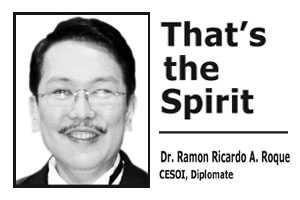THE issue on the “imported garbage” from South Korea and Australia (including the garbage from Canada) illustrates that governance in our country is less-than-desired because some individuals and groups in our society opt to sacrifice national interests for a sum of money.
Governance is not the sole responsibility of the government. In fact, some scholars even assert that governance is too important for it to be just a responsibility of the government alone.
The value of nationalism – the love of country – should be the anchor of governance.
While resolving the issue calls for the shipping back of the concerned garbage to the countries of origin, the government (given its role in the country’s governance) also needs to hold those responsible for the garbage importation accountable in accordance with our existing laws.
A Filipino who imports garbage to have the same dumped in our country in consideration of a sum of money is the same, if not worse than, an ordinary criminal because that citizen tramples on the interests of all Filipinos and the dignity of the Philippines. No nationalistic Filipino will ever allow the Philippines to be a garbage dumpsite of other countries.
The government, particularly the legislature, also needs to revisit our existing laws that relate to this issue and see what new laws or revisions to existing laws are needed for our country to stop the seemingly emerging practice of the so-called first world countries of dumping their trash to developing countries like the Philippines.
The current issue on imported garbage also brings to light the needed alignment of concerned government agencies in implementing laws and rules. The particular issue of the garbage from Australia showcases the apparent misalignment in policy implementation between the Bureau of Customs (BOC) and the Department of Environment and Natural Resources (DENR).
The apparent misalignment is illustrated by the difference in the appreciation of the “garbage” from Australia. The DENR ruled that the same is processed engineered fuel (PEF) while the BOC maintained that those are municipal wastes.
What do such different appreciations of the same waste products tell us? Such difference in appreciation raises more questions. Are there no clear measures that concerned government agencies should use in determining whether a garbage is PEF or municipal waste, so that decisions on the same are fact based and not simply discretionary? What agency should have the last say in matters such as the current garbage issue?
We hope that the issue on the garbage from South Korea and Australia will be dealt with the same decisive action of the Duterte Administration on the garbage from Canada.


